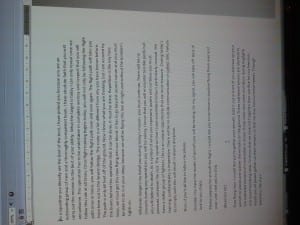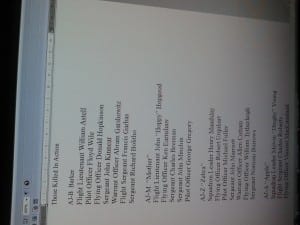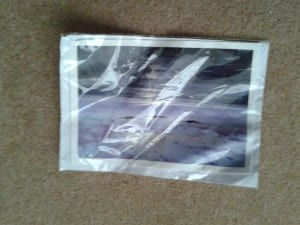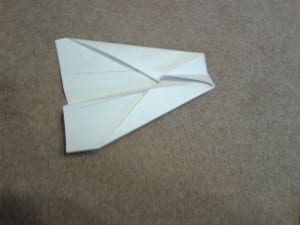When it finally came to the 3:00pm performance I thought my commitment , energy and ability to tell a storyline from the Grandstand’s history was excellent.
There were many strengths to my overall performance. Firstly, I responded to the site in question very well. I, in each of the three rotations , described how the aircraft were related to the Grandstand’s history. This link being that outside the Grandstand was the first Lincolnshire aircraft hangar. Furthermore, I remained in authority as my character very well, and this was shown in my diction and projection too. Likewise, I assisted the audience to ensure that they understood everything they needed to about the tasks I was asking them to do (eg, make a paper aeroplane). However, I , in a major weakness lost focus twice during the performance. I found it hard to maintain my silence during greeting the audience and forgot to give some of the audience members paper to construct their aircraft. If I was to perform Safe Bet again, I would therefore concentrate on each task separately ,rather than trying to pre-empt tasks as I was doing. Part of the reason for this was that I never timed my performance. As each of the war based presentations revolved they need to last for approximately the same length of time. In future I really should have been more aware of the time limit.
Copy Of The Briefing Speech In The Perfomrance


Copy Of Some Of The Names Of The Airmen Who Lost Their Lives, Read Out During The Memorial Service, Whilst
The Audience Are Flying The Aircraft
Overall, I feel that the process in Site Specific Performance to make Safe Bet has been a great experience. I researched aircraft models, and information about them in Lincolnshire a great deal before developing ideas. I also created all scripts in my performance extremely carefully so that i t was always contextual and historically appropriate whilst being realistic The drifting at the beginning of this process definitely helped me to improvise ideas rather than rigidly fix a plan. I changed my style of performance many times though I did settle on the theme of war early in the process. On the other hand, if I was to repeat this experience I would have researched into not only Lincolnshire aircraft but it’s impact on the Grandstand a lot earlier in the process. I would also have centred the performance on waiting more . Feedback from the performance was overall very positive but one development that was suggested, was to read out the audience’s names on the memorial list. This would literally put them into the airmen’s shoes so that they can empathise with the performance more. To conclude, I think I connected myself to the space very quickly and therefore portrayed “a variegated scene of perception and action” ((Casey, 2001 ,p18 in Pearson, 2010, p94)). I was able to think outside the box, adapt ideas independently and engaged enthusiastically with tasks in many different sites to progress ideas. The end result was an interactive , thought provoking demonstration of a poignant site specific performance which brought the Grandstand’s voice and history alive in a modern twist.

A Dambusters Lancaster Aircraft

My Modern Day Representation Of A Dambusters Lancaster Aircraft
Works Cited
Pearson, Mike (2010) Site Specific Performance, London: Palgrave Macmillan